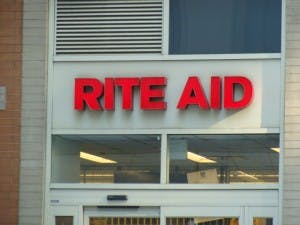Stocks can be pushed higher or lower as analysts provide their outlooks. These calls are not enough to base an investment on, but should be considered as part of your research. Therefore, I am assessing a few of Friday’s top calls, and determining if each was a good call.
Rite Aid Corporation (NYSE:RAD)

On Thursday I wrote “This High-Flyer is Still Too Cheap” here on Motley Fool and laid out all the reasons for why this stock is cheap. It is unprecedentedly cheap compared to its competition, and the reason is because it has been oversold for years while it struggled to achieve profitability. However, those problems now appear to be a thing of the past as an upsurge in generic drugs and a focus on efficiency has the massive company returning consistent profits. Last year I chose Sprint at $2.30 as my “Value of the Year,” but in my opinion, Rite Aid Corporation (NYSE:RAD) is at least three times more attractive, because it’s profitable and due to its fundamentals/valuation at current levels.
The Home Depot, Inc. (NYSE:HD)
Shares of The Home Depot, Inc. (NYSE:HD) traded higher by 1.5% after Jefferies upgraded the stock from “Hold” to “Buy”. The firm cited a “bullish sales outlook” as the reason for the upgrade. The firm explained that every sales check issued continues to return favorably for the company. Therefore, an $85 price target was issued.
First off, I think The Home Depot, Inc. (NYSE:HD) is a great company, but I do wonder about these “sales checks”. This is a company expecting total sales growth of just 2% for the full-year, which could be below GDP. Yet despite this sluggish growth, the stock is trading at a higher P/E multiple than it was back during the housing boom. Its P/E ratio of 24.34 is simply too expensive, far greater than the S&P 500 average of 15.50. Therefore, I think there is far better value elsewhere in the market, and even if Jefferies’ “sales checks” is predicting 3% sales growth, I still don’t think it makes the stock worthy of its valuation.
International Paper Company (NYSE:IP)
International Paper Company (NYSE:IP) lost almost 1% of its value on Friday, but was still upgraded by Jefferies with a $60 price target. The firm’s upgrade was more macro-related, as Jefferies believes that recent price increases in the containerboard sector will continue to last and produce higher profits for those in the space.
At first glance, International Paper Company (NYSE:IP) looks expensive, with its trailing P/E ratio of 26.63, but this should be weighed against its forward P/E ratio of 10.19. With the stock trading at just 10.19 times next year’s earnings and just 0.76 times sales, it is priced significantly cheaper than the market. This is a company that is expected to outperform economic growth over the next five years, and is priced very conservatively, with a PEG ratio of just 0.39. Personally, I really like this stock, and the 2.60% yield it returns. I’m not sure that high containerboard prices will hold, but either way, I still think the stock is a “buy” and is cheap.
Conclusion
In my book, Taking Charge With Value Investing (McGraw-Hill, 2013), I discuss how to assess the opinions of analysts, and how to use them to your advantage. Typically, there are two types of calls:those that follow the trend and those who call regardless of the trend. It is important to distinguish between these two groups, and to not follow the performance that a call creates, but rather read and incorporate the notes as part of your research. Then, when you are able to find inconsistencies between value and valuation you will be better prepared to capitalize on the opportunity.
Brian Nichols is long RAD. The Motley Fool recommends Home Depot.